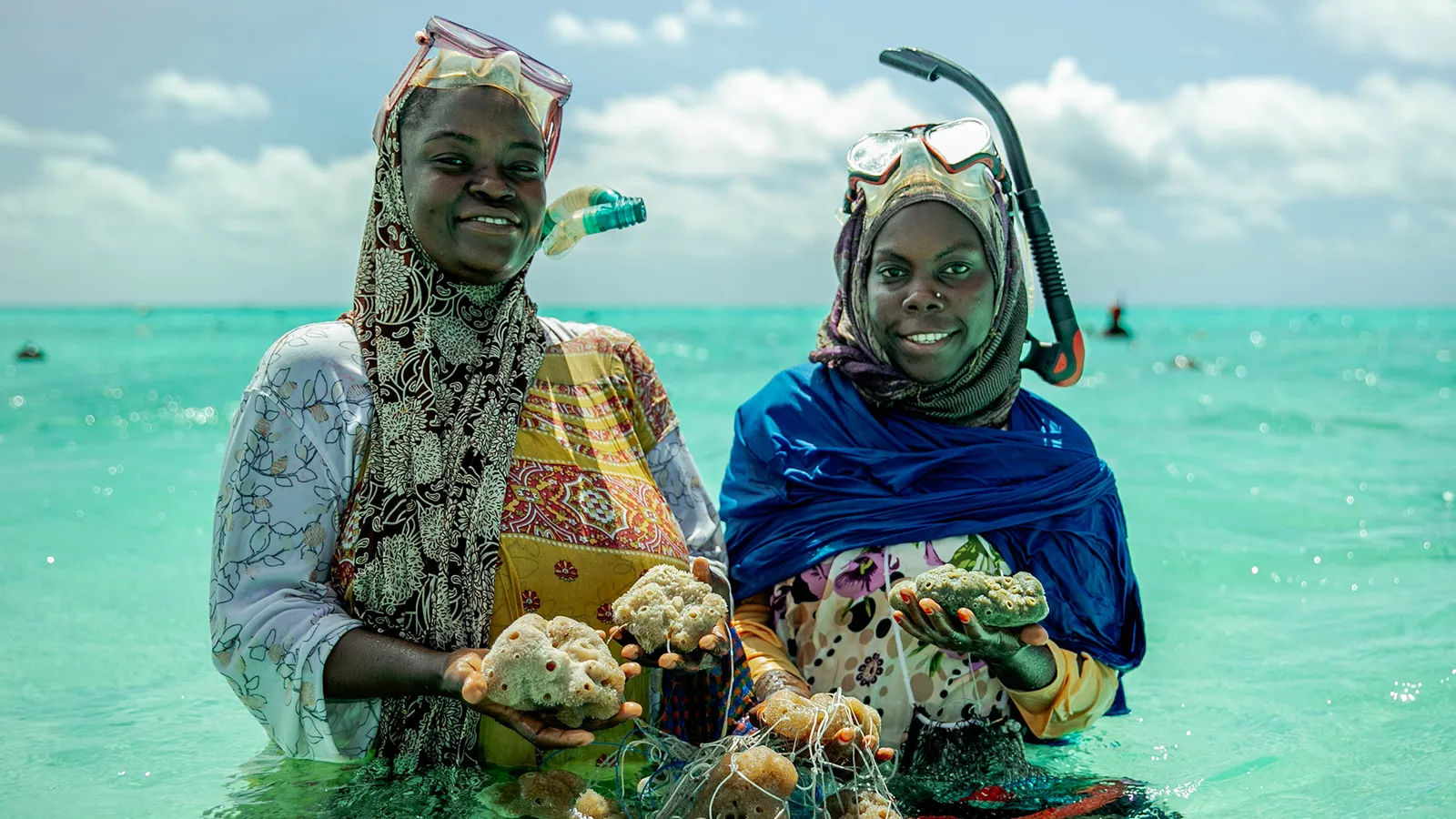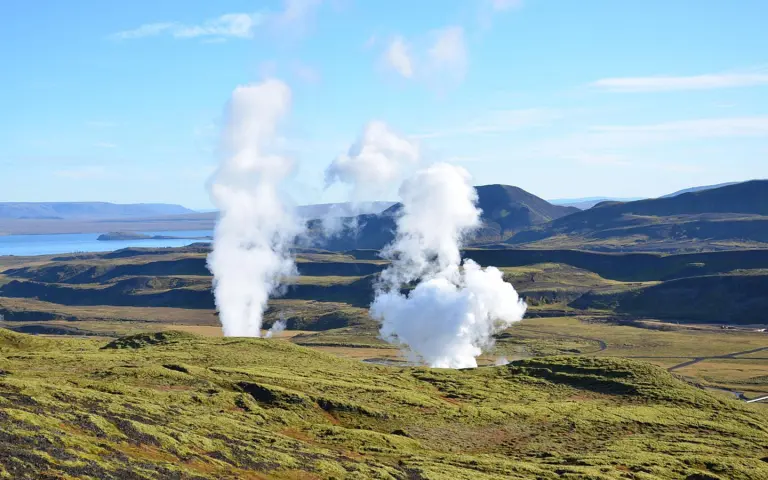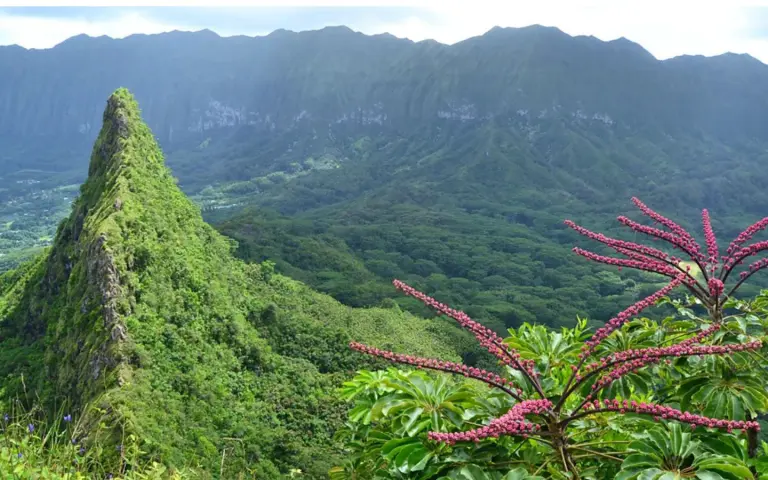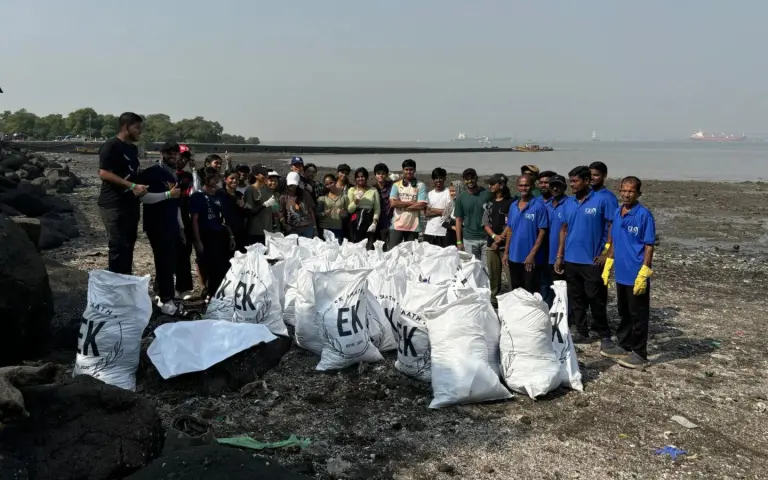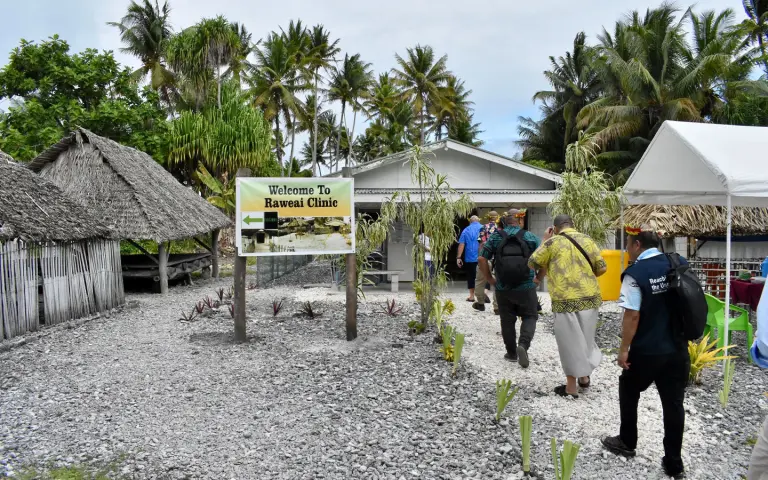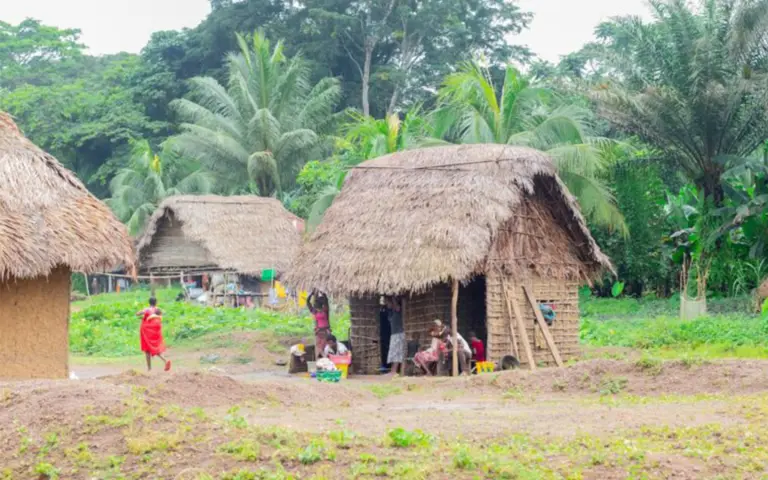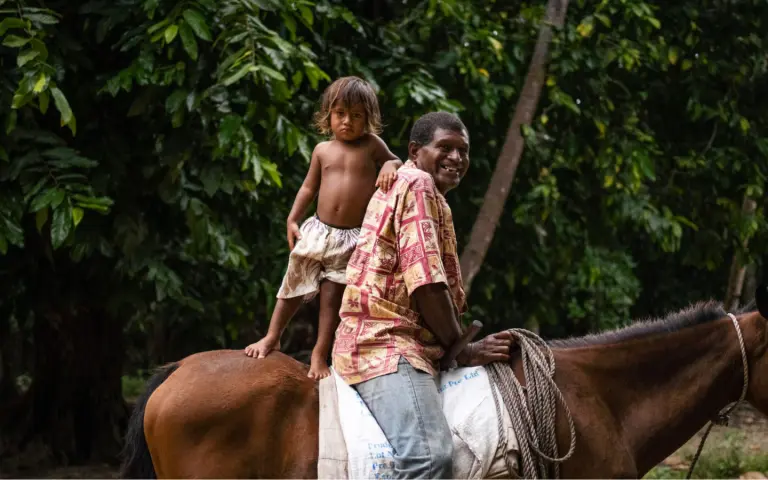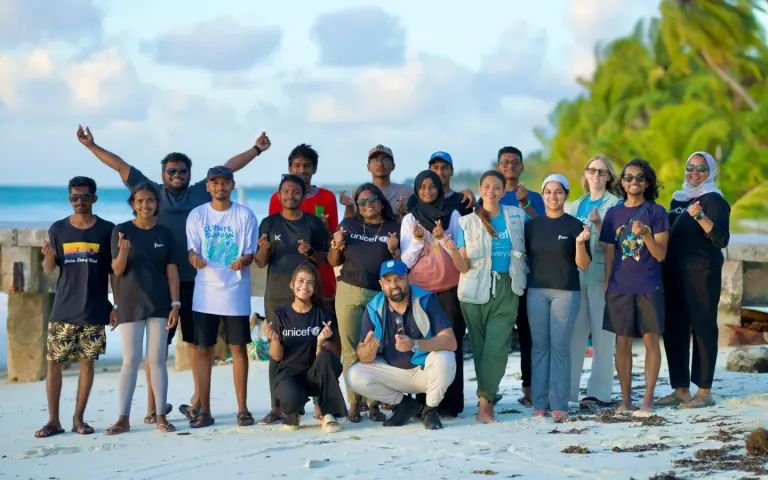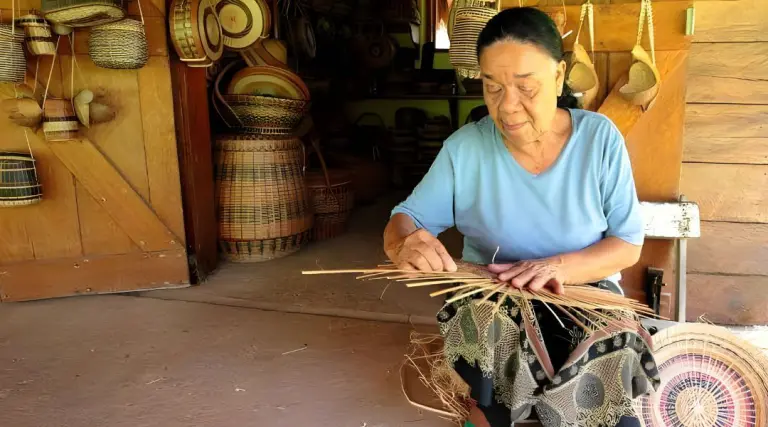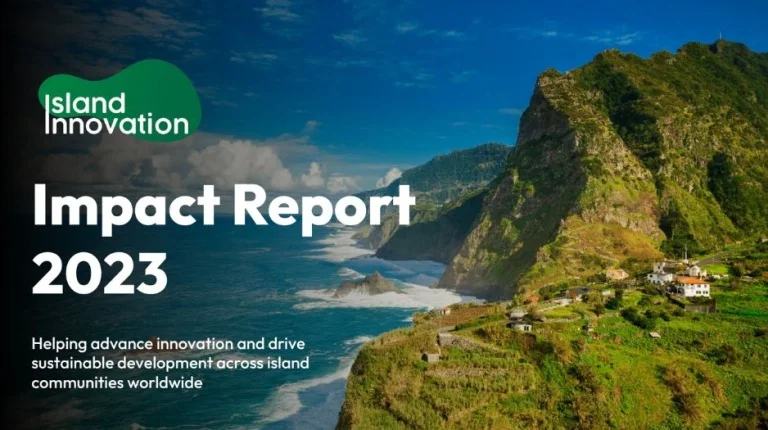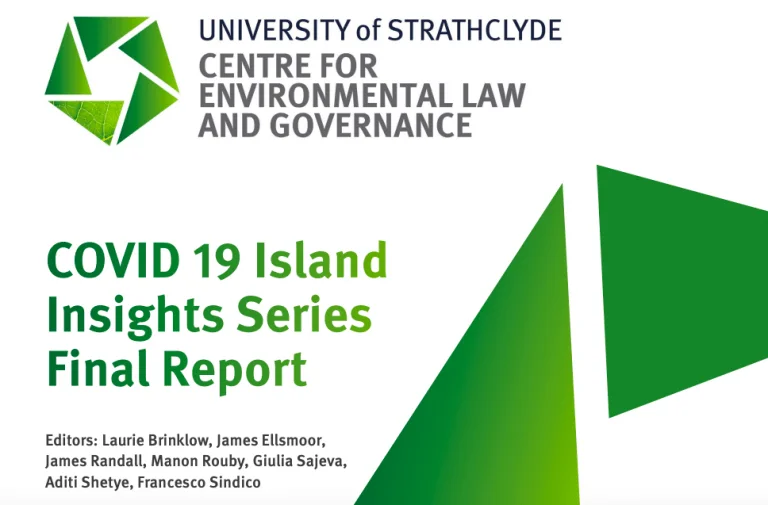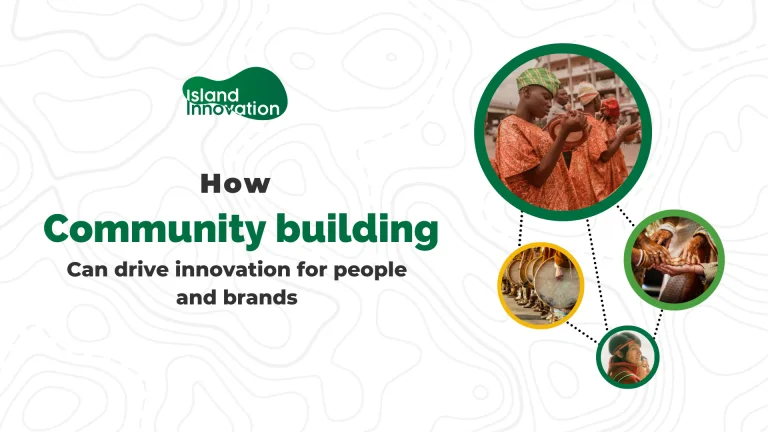Image credit: Lauraclara Cosmas. Retrieved from bbc.com
Excerpt from bbc.com
The quest for prosperity has led Rajabu and 12 other divorced women and single mothers from Zanzibar’s Jambiani village into the Indian Ocean to grow climate-resilient sponges.
Farming sea sponges has become a lucrative business for these women in recent years. Many women in Jambiani farm seaweed, but low yields due to rising sea temperatures have started to make it to earn a living. In 2009,some women began switching to growing puff-like soft sea sponges: primitive aquatic animals that, when harvested, are used for bathing and cleaning.
Sea sponges are more resilient to warmer temperatures and filter pollutants such as sewage and pesticides out ofthe water.
Local women’s rights activists say sea sponge farming is helping to improve gender equality in Zanzibar and has lifted these women out of poverty. The farmers themselves say their quality of life has improved.
Sea sponges, which are technically animals but grow, reproduce and survive like plants, are comprised of a shell-like layer, riddled with tiny pores which allows water to flow in and out. The marine creatures are thought to have existed for over 600 million years and may well have been Earth’s first animal. Scientists have identified over 15,000 species globally.
Marine Cultures, a Swiss non-profit, established sponge farming in Zanzibar in 2009 to enable poor women to earn a better income and help protect the region’s natural resources.
“I thought it is a good thing to cultivate the sea, not only to take things out, without giving something back,” says founder Christian Vaterlaus.

